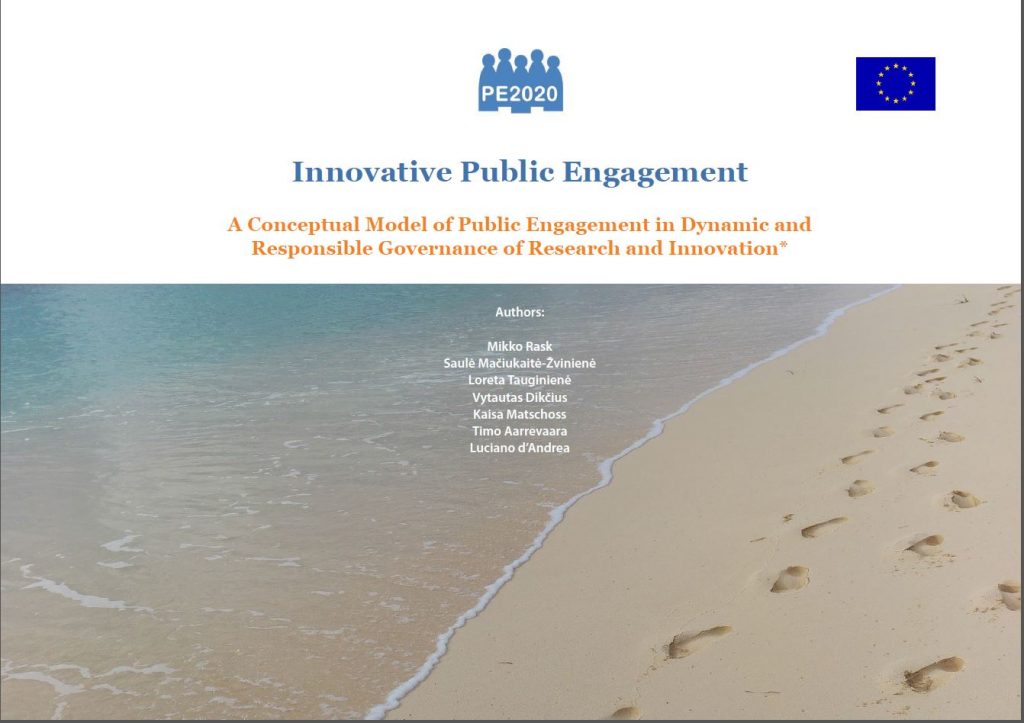This report presents the work executed in PE2020 Work Package Three. The aim of the work package was to 1) test and refine innovative public engagement tools and processes in research programme contexts, 2) to evaluate the feasibility of using such tools in other countries, and 3) to gain further understanding of the relevance of contextual factors in designing processes for public engagement.
The seven pilot initiatives were co-designed and implemented with the research projects and programmes we examinied. Testing and introducing new public engagement processes requires them to be adapted to the preconditions of the target programmes. Through the pilot initiatives we were also able to identify innovative public engagement methods. The initiatives led to positive results with regard to the quality of the research projects as well as the relationships between the actors. The forms of public engagement used in the pilot initiatives varied from more conventional science communication and focus group discussions, to highly collaborative co-creation practices.
There has been strong pressure to find solutions that match the style and obligations of the new funding programmes. However, the successful research consortia from the first phases of adopting innovative practices have shown ability to develop both their knowledge and skills in public engagement.
-Timo Aarrevaara, Kirsi Pulkkinen and Ian Dobson-




